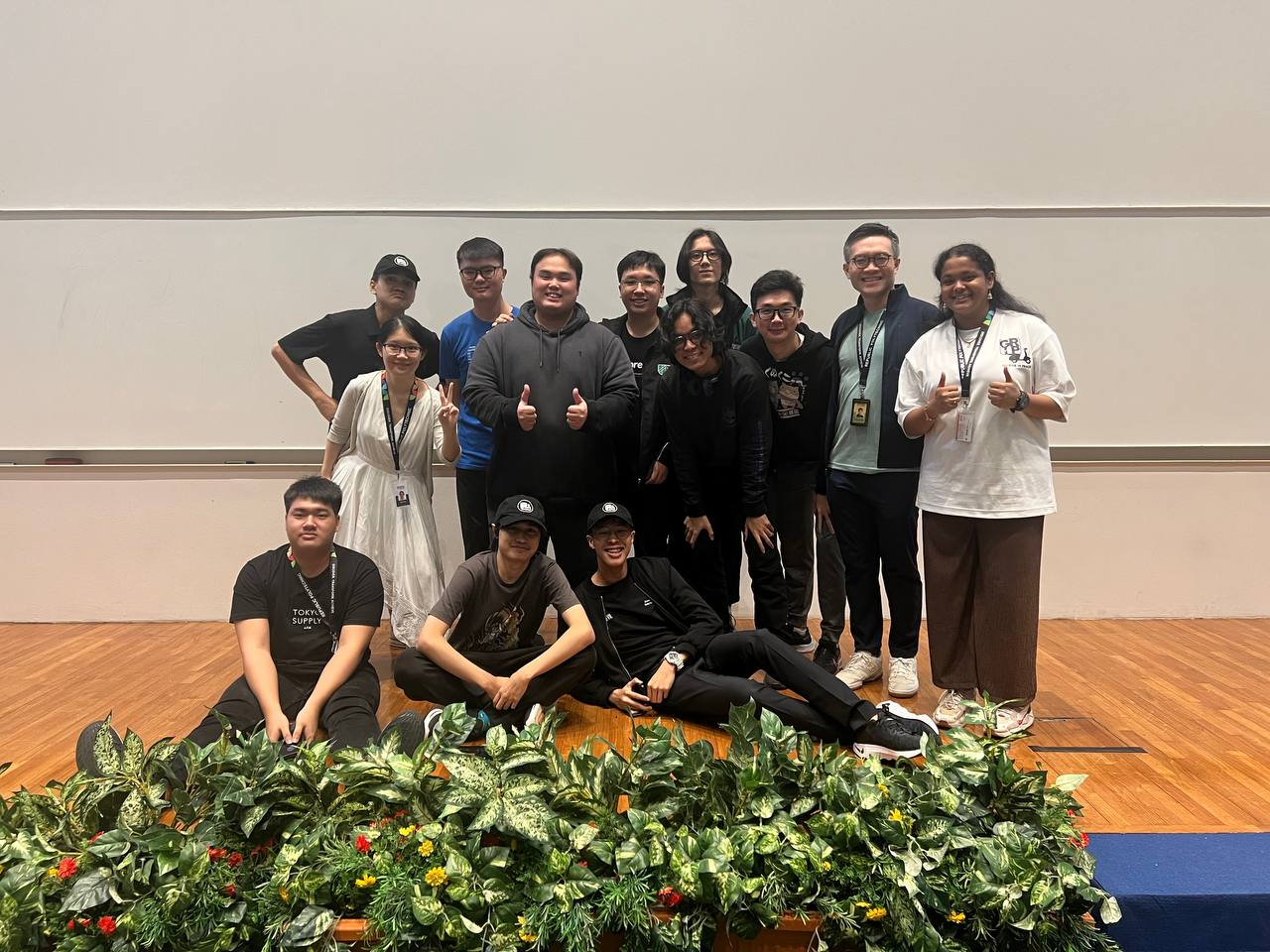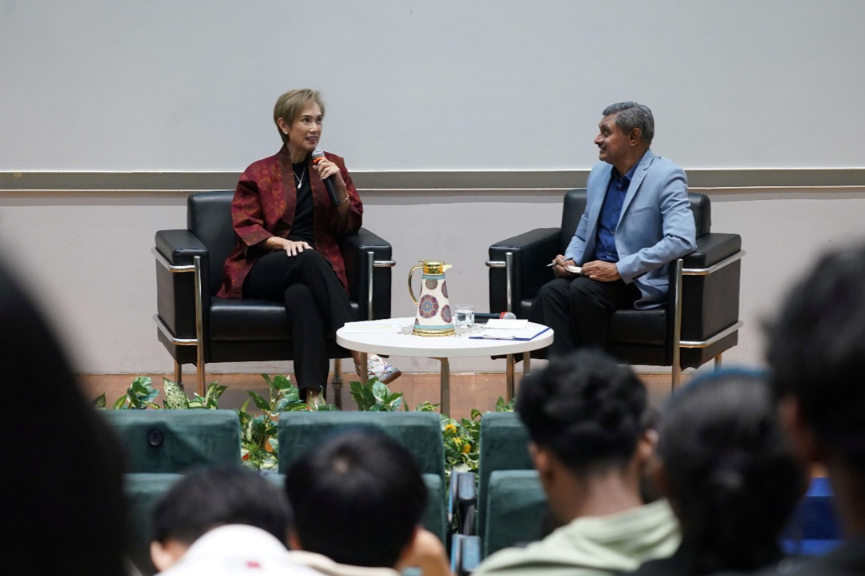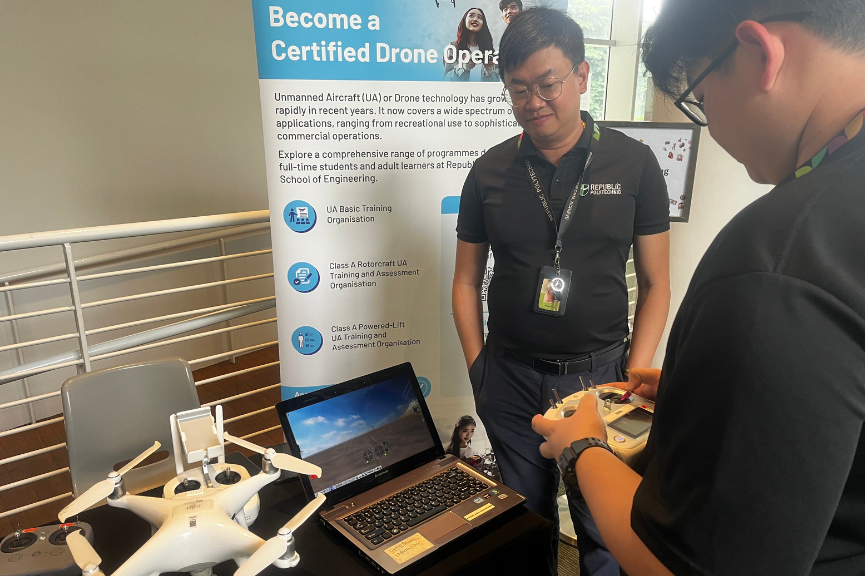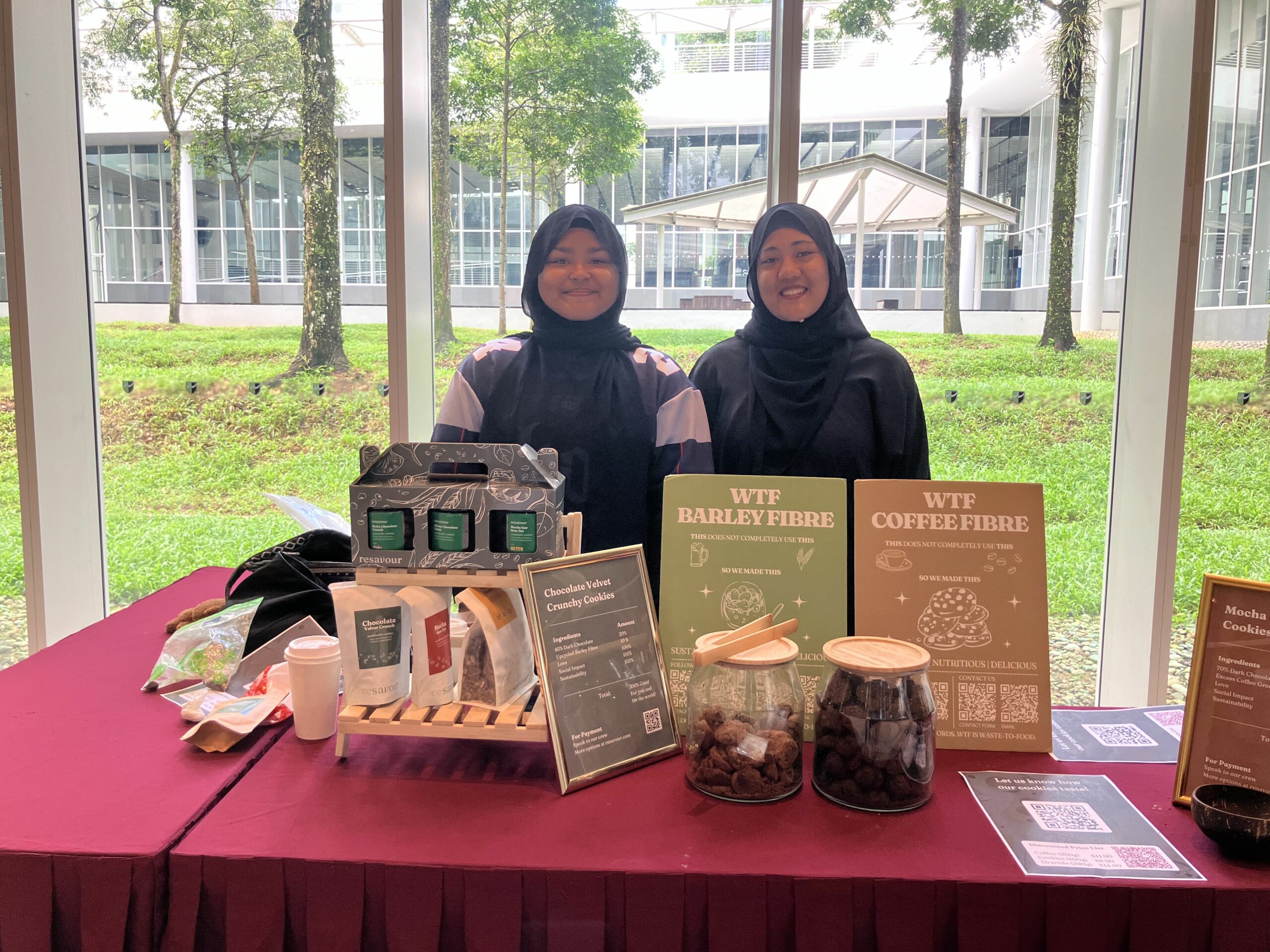As part of RP’s forward-thinking Entrepreneurial Immersion Programme (EIP), six students from the Diploma in Design for Games & Gamification (DDGG) swapped a conventional internship for the chance to establish and operate their own game development studios.
“RP’s EIP gave us the perfect platform to merge our passion for gaming with entrepreneurial ambition,” said Anson Heng, 19, digital artist for Hakai Games Studio.
The outcome? Two independent gaming studios—Hakai Games Studio and Bremit Studios—each with distinct creative identities but united in a shared mission: to debut their games on Steam, the world’s largest PC gaming platform, in 2025.
A Bold Leap into Uncharted Territory
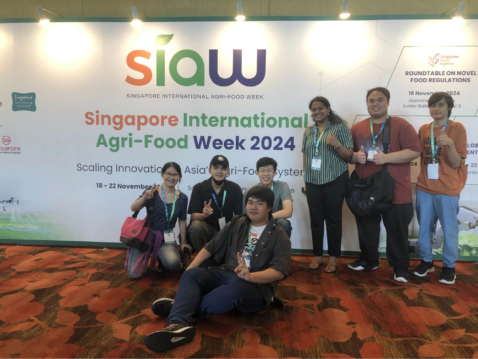
The Bremit Studios team at the Agri-Food Tech Incubation Programme (AFTIP) 2024, where they gained invaluable insights into the startup ecosystem and honed their skills in pitching to potential investors.
(Photo: Chua Jie Lun)
Taking the first steps into entrepreneurship was no small feat. For these students, pitching their business ideas meant venturing into unfamiliar territory. “We weren’t business students,” recalled Chua Jie Lun, 20, team lead at Bremit Studios. “Everything from marketing to pitching and finding investors was self-taught.”
Their lack of prior experience was offset by resilience and passion. Guided by dedicated lecturers and their own research, the teams navigated complex challenges, including budgeting, project management, and marketing, all while continuously refining their games.
Horror with a Cultural Twist

Set in an eerie abandoned kampong, the game invites players to step into the role of an investigator unraveling a gripping missing-persons case.
(Photo: Getty Images)
Bremit Studios chose to root their creativity in local lore with Project Pontianak, a haunting adventure set in an abandoned kampong. Drawing from Southeast Asian folklore, the game centers on Zero, a protagonist investigating a chilling missing-persons case.“Our focus was to create a game that felt more like a lingering adventure than a fleeting scare,” explained Jie Lun. By embedding Singapore’s famous ghost, the Pontianak, into the narrative, Bremit Studios has tapped into a rich vein of regional culture, while their Ghost Story Competition invites players to contribute their own tales for future titles.
Redefining First-Person Shooters
Hakai Games Studio took an unconventional approach to first-person shooters (FPS) with Popo & Rob. Designed to be less intimidating to casual gamers, Popo & Rob introduces unique mechanics where gravity takes a backseat, allowing players to run on walls and engage in dynamic, fast-paced battles.
“We wanted to make FPS games approachable for everyone, especially those new to the genre,” shared Fernado Lim, 22, founder of Hakai Games Studio.
This innovative twist challenges traditional FPS tropes and opens the genre to a broader audience.
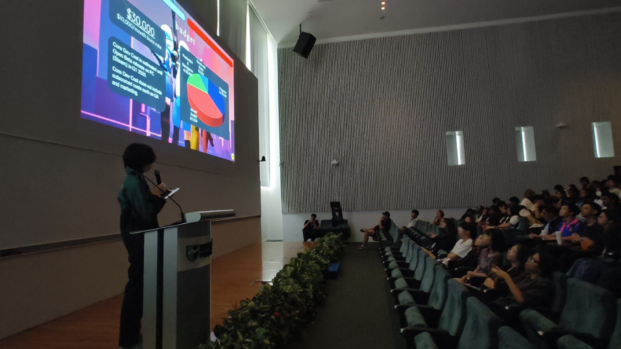
The talk delved into the business aspects of game development, covering crucial topics such as development costs, timelines, benchmarks, and other key metrics, offering a realistic glimpse into the challenges of starting a game business. (Photo: Hakai Games Studio)
Showcasing Excellence on Home Turf
The culmination of months of hard work was celebrated at the B101 Entrepreneurship x Bremit Studios & Hakai Games Studio EIP Product Launch. Held at RP, the event provided the students a platform to present their games to hundreds of EIP students and industry peers.
The event wasn’t just about gameplay—it also delved into the business side of gaming. Students showcased their development costs, timelines, and benchmarks, offering a transparent look into the realities of starting a game studio. Interactive Q&A sessions sharpened their public speaking skills and allowed them to address audience queries in real time.
Inspiring the Next Generation of Entrepreneurs
For aspiring entrepreneurs, the students offered valuable insights. “Start small, think big, and always stay open to feedback,” advised Ansen Heng.
“Failure isn’t the end; it’s a step forward,” added Jie Lun.
The inspiring journey of these RP students proves that with the right mindset, guidance, and a willingness to learn, the leap from classroom to global stage is within reach.

